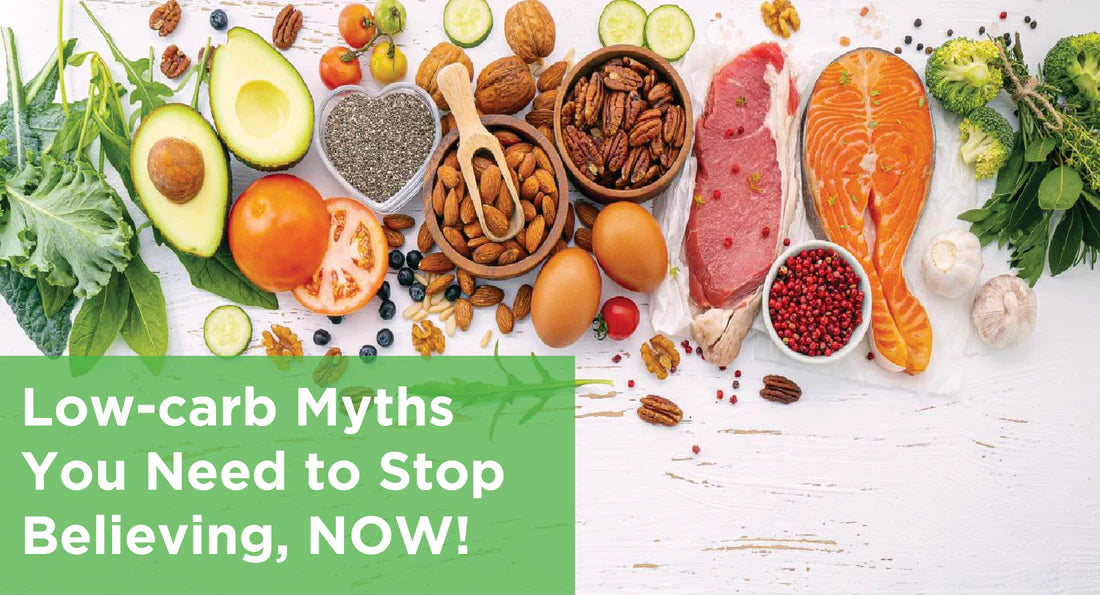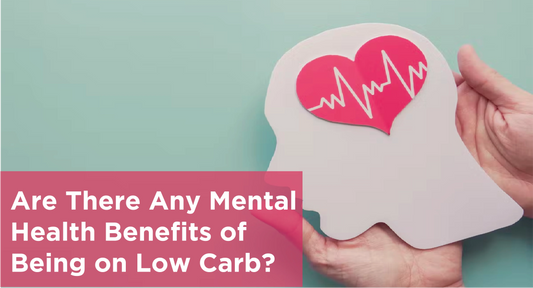Low carb diet is extremely popular and result oriented. This diet is widely practiced. Low-carb meals can help manage multiple health conditions like obesity, diabetes management, improved blood glucose levels, etc. Regardless of its positive results and wide use, it is linked with a set of myths. There stands many misconceptions, perceptions and concerns around practising low carb. So let's expose the hollowness and falsehood of the top 5 myths associated with the low-carb diet.
Here are the five common myths connected with low-carb diets:
1. Low carb can be done by everyone
Everyone shouldn't consume meals that are low in carb. It is not ideal for children, and pregnant women and on top of it, if you're a diabetic patient you would require supervision too. Low-carb diets can be helpful for low to moderate-intensity workouts, but for endurance athletes, dietary strategies can be different.
Basically, it is for people who are battling certain health conditions like obesity, fatty liver or insulin resistance problems. Those who want to lose weight and have tried all forms of other diets may choose a different approach and try low in carb meals. But we cannot neglect the fact that it is not meant for everyone.
2. Butter and coconut oil are unhealthy
Is saturated fat healthy? Can it be taken? The answer is yes, keeping aside all the anti-fat propaganda. While doing low carb, one can increase the fat content in the diet, which means the inclusion of butter and coconut oil is allowed.
This is because when you do low carb, you are given the freedom to increase fat and protein to satiate your hunger and deal with other issues. Low carbs provide the liberty to add that extra fat to your diet. So there is no need to avoid high-fat products such as fatty cuts of meat, butter and coconut oil.
However, fat is not free food, and its overconsumption can do potential harm to health. So it is advised to take fat under certain or limited amounts and portions so that it doesn't start harming instead of helping your health.
3. A low-carb diet is harmful to your mental health
Again, this is untrue. Studies that examine the effects of low carb on mental well-being have proposed that meals with low carb content uplift mood and cure depression.
Studies have proved that low-carb diets have a positive impact on brain health. It doesn't negatively affect your psychological health, rather it reduces symptoms of depression in people, improves their mood and also enhances overall brain functions. So next time, while adopting a low-carb diet, you don't have to be concerned about the adverse effects of low carb on your mental health.
4. Low-carb diet is difficult to stick to
Initially, low carbs might be a little restrictive with the elimination of some kinds of food, which might affect your blood sugar levels and weight. But the misconception which revolves around the permanent elimination of these food items is false.
In a low-carb diet, the restriction on a few foods stays until you can start getting results and positive responses and, later, one can reintroduce their previous food ingredients or items in moderation. Although you can reintroduce some carbs, it needs to be eaten in smaller amounts and as per the tolerance.
5. Low-carb diet is boring
There's an initial reluctance when people start incorporating low carbs into their diet. So if you think low carb is boring then that's quite natural. This usually happens because we are used to eating food in a certain way. But don't forget that with a new change comes new explorations and experiments that can also keep you feel full and satisfied.
For example, replace your normal atta with almond flour or coconut flour, though these are not the normal ingredients used in day-to-day cooking. But it surely has the potential to bring a change and make your low-carb diet less boring.
One can also take an extra helping of fat while in low carb. As there is no strict limitation on eating a certain amount of fat while on low carb, you can include fat to make your food more interesting and flavoursome. Also, many recipes can come out beautifully on a low-carb diet or keto diet with slightly different ingredients.
People can add different seasonings and good oil dressings like coconut, butter and olive oil. Non-vegetarian protein and fat-containing foods such as eggs, fish, chicken and meat also make a low-carb diet less boring.
The bottom line
Now that we have debunked the traditional myths relating to a low-carb diet, we hope you try a low-carb diet that's much healthier, interesting and free from misconceptions or doubts.
References:
https://blog.csiro.au/low-carb-myths/
https://blog.myfitnesspal.com/8-carb-myths-debunked-by-registered-dietitians/
This Blog post is an initiative by DiabeSmart, to provide accurate and Nutritionist / Doctor approved information related to Diabetes. DiabeSmart is India's first Food brand designed specifically for Diabetics, that has been clinically tested on Diabetics and Pre-Diabetics to deliver 55% - 70% lower Sugar spikes. DiabeSmart is part of Lo! Foods - India's leading brand for Everyday Functional Health foods.






